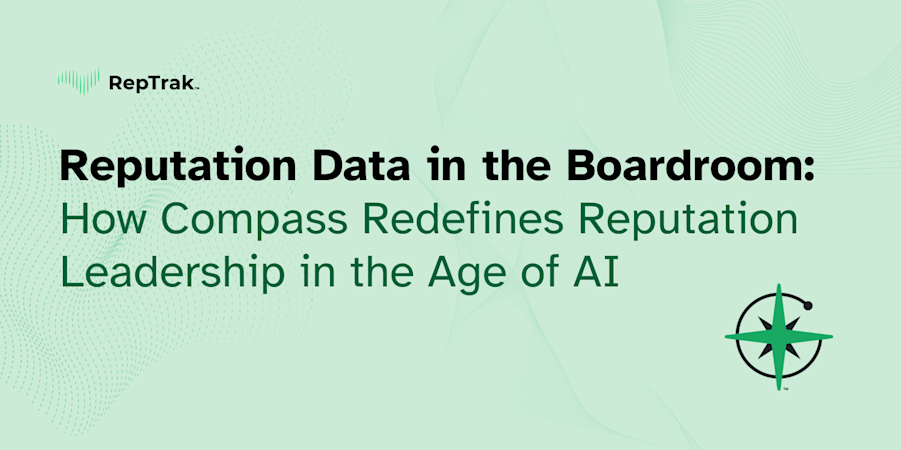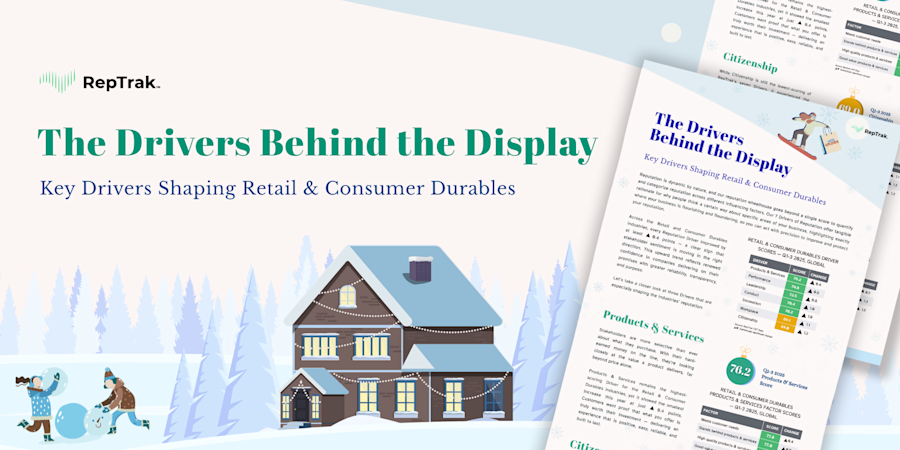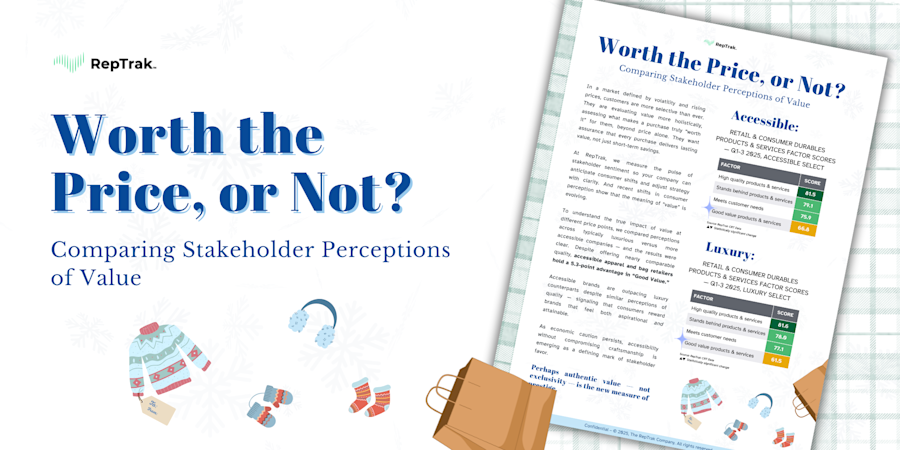A Note on Gender Equality in Banking and Finance
Blog Post25 Oct, 2019
Earlier this month, I joined my colleagues at The Most Powerful Women in Banking event at American Banker. Events like these help give momentum to important conversations about gender in the workplace, especially in two industries that have historically been male-dominated.
Seeing many powerful women have such a significant influence on their firms and respective industries gives me hope for the many young women who will one day follow in their footsteps.
(Here you can find the complete list of honorees for The Most Powerful Women in Banking, The Most Powerful Women in Finance, and the Women to Watch of 2019).
This event inspired me to dive deeper into our own data at Ri about the impact of gender and diversity in the workplace, and how this drives corporate reputation.
At a high level, our Global 2019 RepTrak research reveals that your corporate reputation is shaped by how open and transparent you are with different stakeholders, by your social and environmental footprint, and by the way you treat your employees. Together, these aspects of a company drive your reputation to a greater extent than what you sell.
Delivering on new workplace expectations, such as being a caring and diversity-embracing employer, matters to consumers and affects their behavior towards you. In the end, how a company treats its employees is viewed as a proxy of what they represent and their broader corporate purpose.
The reputation of the banking industry is particularly sensitive to workplace-related risks. Using data from our U.S. American Banker 2019 study, which quantifies the impact of 20 reputation risks across a wide range of topics, two scenarios stand out for having the largest detrimental effect on a banks’ reputation:
“deceptive sales practices/opening illegitimate accounts”
“unequal pay by gender”
If a bank is associated with either of these two scenarios, the expected reputation decline is on average, -17.2 reputation points. This delta has the potential to turn a bank’s excellent reputation to an average one, or plummet a middle-of-the-pack bank to the lowest possible level of reputation in our RepTrak scale.
In sum, standing against equal pay is viewed as negatively as opening fake accounts for your customers, and can have an equally negative impact on your reputation.
Overall, our data indicates that guaranteeing equal pay, diversity, and safety at work is not only important for your people and your corporate culture but that it matters to your business. Given that reputation is a predictive indicator of intent, our data supports that forming inclusive workplaces will be good for business in the long term and protect you from crisis in the short-term.
Events like the one I had the opportunity to attend this fall not only recognizes the achievements of individual women but also celebrates a new way of doing business that stands for diversity and equal opportunity.
Kylie Wright-Ford Chief Executive Officer The RepTrak Company @kyliewf






